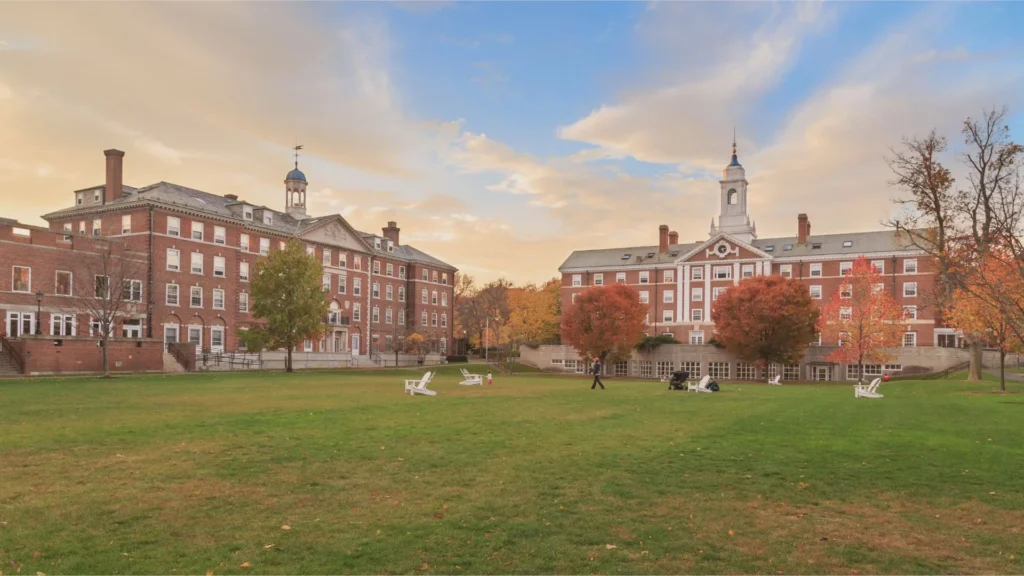Harvard University, established in 1636, is the oldest institution of higher education in the United States and one of the most prestigious universities in the world. Located in Cambridge, Massachusetts, Harvard commands a significant influence over academia globally. One of the critical aspects prospective students and their families consider when looking at Harvard is the cost of attendance, particularly tuition. This article provides an in-depth look at Harvard University’s tuition, breaking down various fees and exploring the financial aid options available to students.
Overview of Harvard University
Harvard University comprises the undergraduate Harvard College, 12 graduate and professional schools, and the Radcliffe Institute for Advanced Study. The university boasts an illustrious faculty, a vast array of academic programs, and unparalleled resources, including the largest academic library system in the world. Given its status, it’s no surprise that Harvard’s tuition and associated costs are significant, but the institution also offers one of the most generous financial aid programs.
Tuition Costs
Harvard College (Undergraduate)
For the 2023-2024 academic year, the tuition for Harvard College is $57,246. This figure represents the cost of instruction and access to the university’s extensive academic resources. However, tuition is just one part of the overall cost of attendance.
Additional Fees
- Room and Board: The standard room rate for students living on campus is $12,056, and the board (meal plan) costs $7,952. These costs cover housing and dining for the entire academic year.
- Student Services Fee: This fee is $3,292 and covers various student services such as health services, extracurricular activities, and other campus resources.
- Books and Supplies: Estimated at $1,000 per year, this cost can vary depending on the student’s course load and major.
- Personal Expenses: Harvard estimates personal expenses at around $2,000 per year.
When combined, the total cost of attendance for an undergraduate at Harvard College for the 2023-2024 academic year is approximately $83,546.

Harvard Graduate Schools
Harvard’s graduate schools have varying tuition rates, depending on the program and the specific school. Below are some examples of the tuition costs for various graduate programs:
- Harvard Business School (HBS): For the MBA program, the annual tuition is $73,440. Additional costs for room, board, and other fees bring the total cost of attendance to approximately $111,818 per year.
- Harvard Law School (HLS): The tuition for the JD program is $70,430. Including room, board, and other expenses, the total cost of attendance is around $104,200 per year.
- Harvard Medical School (HMS): For the MD program, the annual tuition is $67,610. Adding other costs, the total estimated cost of attendance is about $99,416 per year.
- Harvard Graduate School of Arts and Sciences (GSAS): Tuition for PhD and master’s programs varies, but for a typical program, it is around $50,928 annually. The total cost of attendance, including living expenses, is approximately $78,000 per year.
Financial Aid
Undergraduate Financial Aid
Harvard College is committed to making education affordable for all admitted students, regardless of their financial circumstances. The financial aid program is entirely need-based, meaning it does not include merit-based scholarships. Here’s an overview of how financial aid works at Harvard College:
- Need-Blind Admission: Harvard does not consider an applicant’s financial situation when making admission decisions. This policy applies to both domestic and international students.
- Full Need Met: Harvard guarantees to meet 100% of the demonstrated financial need of all admitted students.
- No Loans Required: Harvard’s financial aid packages are designed to cover all demonstrated need without requiring students to take out loans.
How Financial Aid is Calculated
Financial aid awards at Harvard are based on a detailed assessment of each family’s financial situation, considering factors such as income, assets, and any special circumstances. The process typically involves:
- Submission of Financial Information: Families must submit the Free Application for Federal Student Aid (FAFSA) and the CSS Profile to provide detailed financial information.
- Determination of Expected Family Contribution (EFC): Harvard calculates the amount a family can reasonably contribute toward the student’s education.
- Awarding Aid: The difference between the total cost of attendance and the EFC is covered by a combination of Harvard grants, scholarships, and other forms of assistance.
Graduate Financial Aid
Financial aid for graduate students at Harvard varies by school and program. Generally, aid for graduate students includes:
- Fellowships and Scholarships: Many graduate programs offer fellowships and scholarships that cover tuition and provide stipends for living expenses. These awards are often based on academic merit and research potential.
- Assistantships: Teaching and research assistantships provide students with
